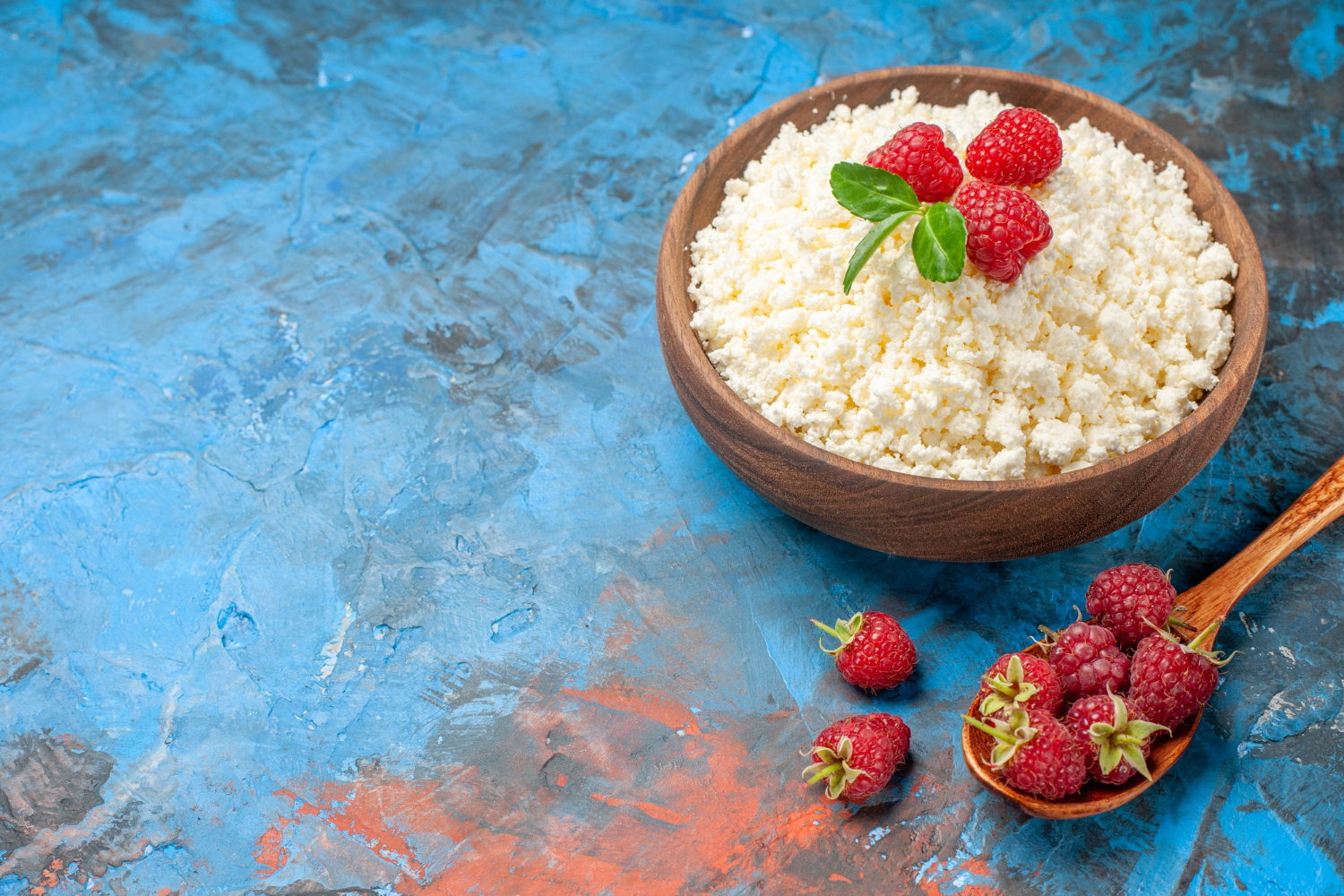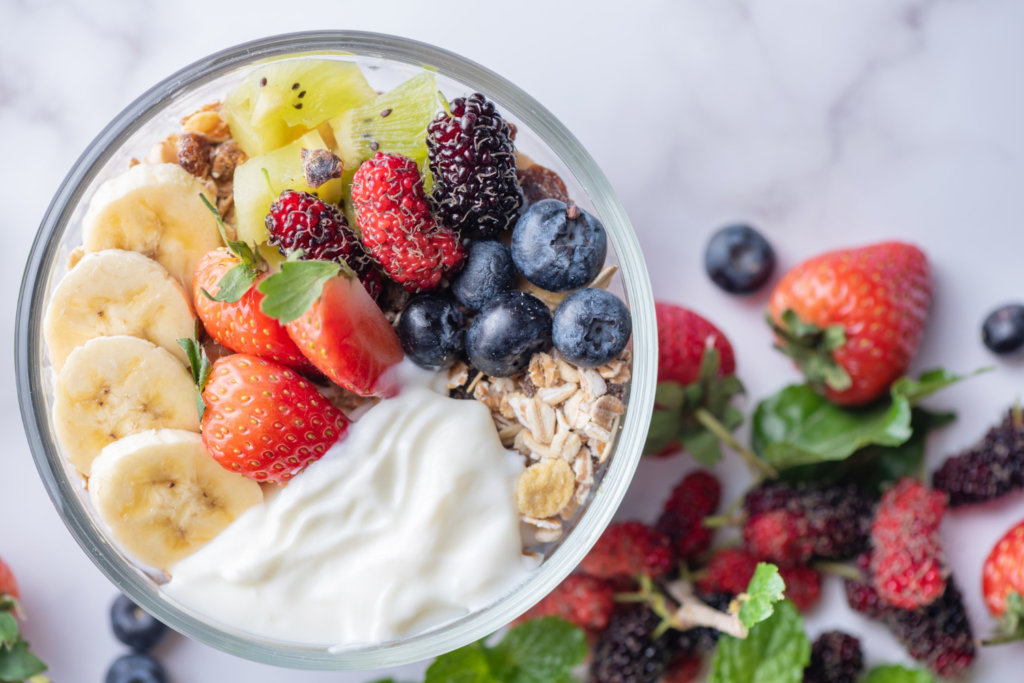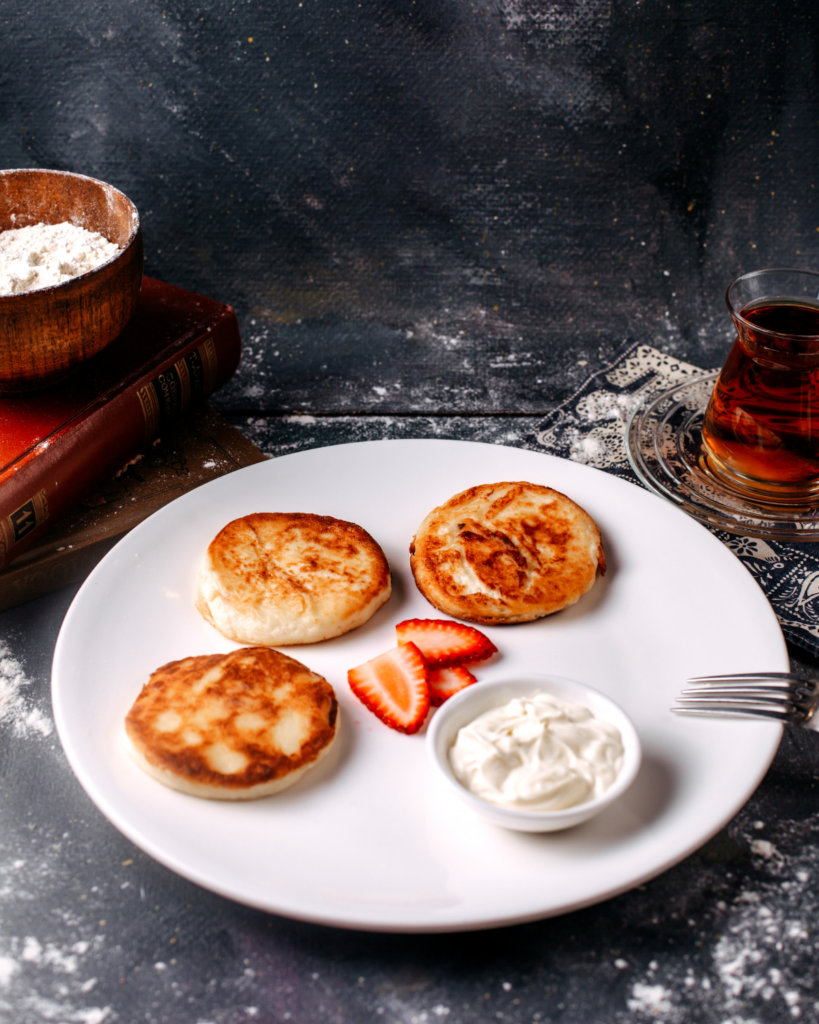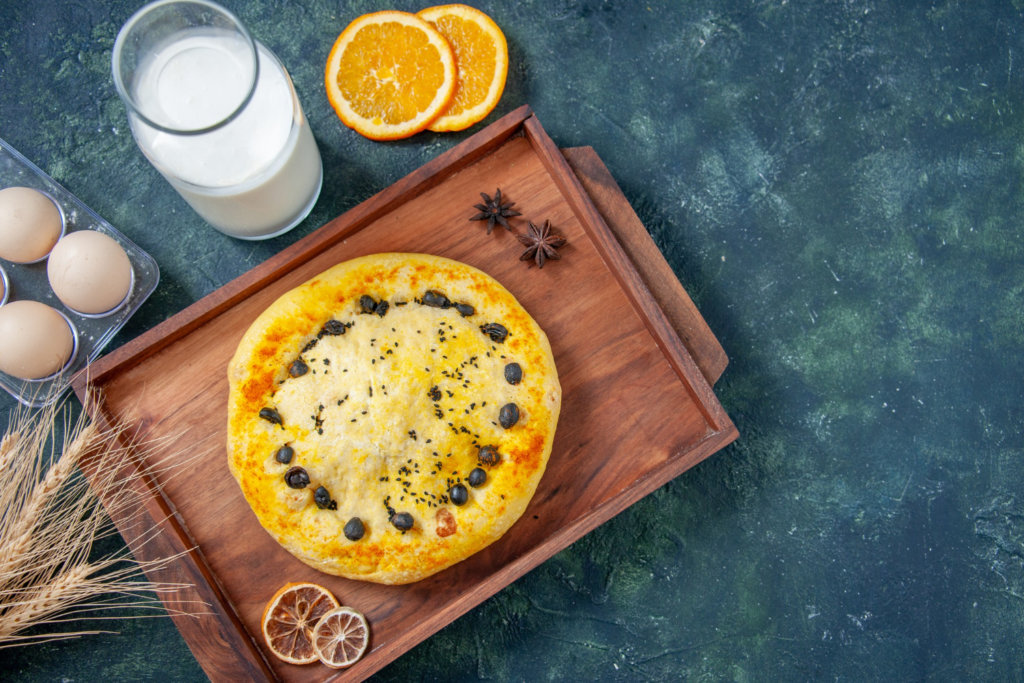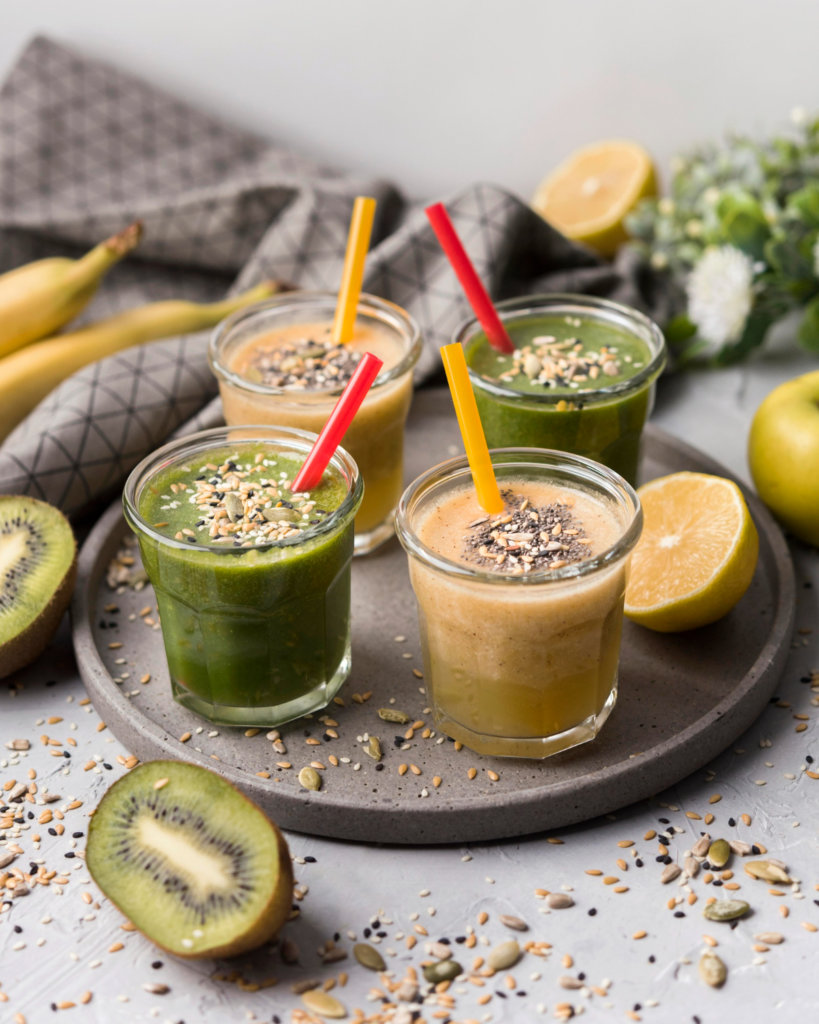In general, cottage cheese is a wonderful source of protein, which then converts into muscle mass, and the most common protein structural framework of our body is collagen. Bones, cartilage, tendons, skin and vascular walls have them. Collagen is synthesized in the organism by itself, but only from those amino acids which are derived from external food such as cottage cheese. Hence, in order to maintain the elasticity of skin and flexibility of vessels as long as possible, it is enough to maintain a proper lifestyle with proper nutrition. Regular use of cottage cheese is a sort of assurance against atherosclerosis, stress, depression and loss of memory.
Cottage cheese is recommended by doctors because of the calcium needed for our bones and teeth. However, low-fat cottage cheese is said to be absorbed worse since soluble vitamins which include vitamin D, important for calcium metabolism, are assimilated together with fat. That’s true, but for instance vitamin D can be gained through fish. Nutritionists say that it has many benefits rather than disadvantages. It is ideal however for dieters as it’s not very high in calories.
With regards to protein, the amount indeed is not as important, what matters here is that this protein has slow and fast fractions, which upon entering the stomach will provide the building blocks instantly, followed by many hours of constant supply, thus prolonging the sensation of satiety. Different classes of proteins take time to digest, which is ideal for muscle recovery after an intense workout.
Cottage cheese also contains:
- Sodium – responsible for kidney function
- Selenium – normalizes metabolism and strengthens the immune system
- Iron – an important element of hemoglobin
- Magnesium – participates in maintaining the functioning of the heart and thyroid gland
- Zinc – responsible for healthy skin and beautiful hair, stimulates mental activity
Consuming 100 g of cottage cheese covers approximately 40% of the recommended daily intake of vitamin B2, and about 30% of vitamin B12. It also contains vitamins A (for mucous membranes and vision), E, B6 and B1. The product is a source of lysine, an essential amino acid. Its deficiency causes fatigue and irritability. Lactic acid bacteria have a complex benefit: they support the functioning of the gastrointestinal tract and help fight viruses.
Varieties of Cottage Cheese:
- Fat – about 18%
- Semi-fat – about 9%
- Classic – 5%
- Low-fat – no more than 2%
Despite the fact that fats in healthy eating are trying to be reduced, they remain useful in their own way. Palmitoleic acid (fatty acid) reduces the risk of type 2 diabetes.
